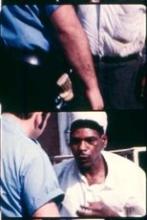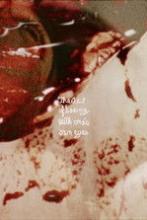
The Pittsburgh Documents
In the early 1970s, Stan Brakhage, the American filmmaker, made a series of films on three institutions in the city of Pittsburgh that are partially connected as instruments that control bodies: the police, the hospital and the morgue. United under the collective title The Pittsburgh Documents (sometimes also entitled The Pittsburgh Trilogy), the three films mark an epistemological break in Brakhage's work.
Eyes (1970)
22 December, 1970
“After wishing for years to be given the opportunity of filming some of the more “mystical” occupations of our Times – which the average imagination turns into “bogeyman”… viz: Policemen, Doctors, Soldiers, Politicians, etc. – I was at last permitted to ride in a Pittsburgh police car, camera in hand” - Stan Brakhage. Preserved by the Academy Film Archive in partnership with The Film Foundation in 2011.
Deus Ex (1971)
19 September, 1971
I have been many times very ill in hospitals; and I drew on all that experience while making DEUX EX.
The Act of Seeing with One's Own Eyes (1972)
19 February, 1972
At a morgue, forensic pathologists conduct autopsies of the corpses assigned. "S. Brakhage, entering, WITH HIS CAMERA, one of the forbidden, terrific locations of our culture, the autopsy room. It is a place wherein, inversely, life is cherished, for it exists to affirm that no one of us may die without our knowing exactly why. All of us, in the person of the coroner, must see that, for ourselves, with our own eyes. It is a room full of appalling particular intimacies, the last ditch of individuation. Here our vague nightmare of mortality acquires the names and faces of OTHERS. This last is a process that requires a WITNESS; and what 'idea' may finally have inserted itself into the sensible world we can still scarcely guess, for the CAMERA would seem the perfect Eidetic Witness, staring with perfect compassion where we can scarcely bear to glance." – Hollis Frampton


